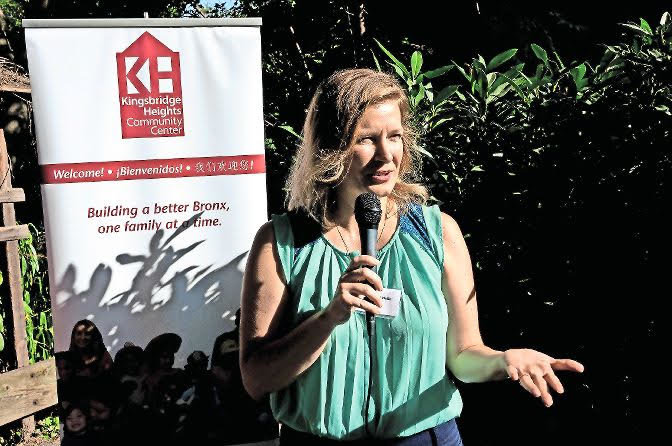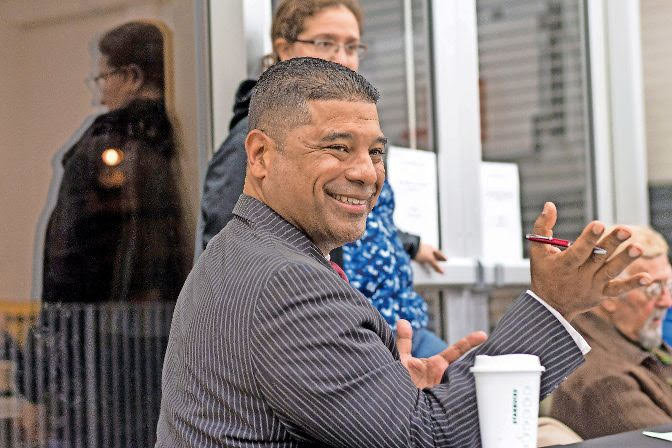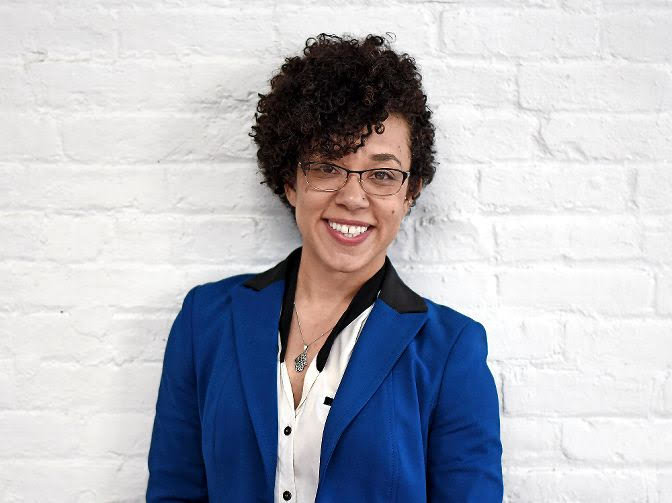CB8 forgoes business as usual for racial equity committee
With the entire country swept up in protests, antiracist education, and calls for reform from police departments to college campuses, Community Board 8 simply couldn’t go on like nothing was happening.
In the wake of his attempt to become CB8’s new leader, Sergio Villaverde introduced a resolution last month asking the board to address systemic racism not just in the community, but in the board itself. The resolution asked that the board not to return to “business as usual” as the entire country was swept up in protests at the time following the police-involved death of George Floyd in Minneapolis.
Rather than wait until the board began regular meetings again after a summer break, Villaverde demanded immediate action.
Fellow CB8 member Margaret Della responded immediately with what would become a working group. A month later, that working group became an official special committee at an out-of-season board meeting, with CB8 treasurer Rosalind Zavras taking the lead.
“We are moving from working group to special committee as outlined in our bylaws,” new CB8 chair Laura Spalter said during the meeting, adding it’s “a structure that I believe we are all united on. The needs of the community are always changing, and the board must prepare to meet these needs. Tonight is only the first of many steps.”
The new racial equity special committee will meet for the first time July 21 at 7 p.m. Like other special committees, Spalter told The Riverdale Press, it will continue on for only a year, unless board members decide it’s still needed. Joining Zavras are board vice chair Bob Bender along with Della, Robert Fanuzzi, Daris Jackson and Jyll Townes.
But the makeup of the committee didn’t come together without controversy. The resolution in front of the board last week offered to create the committee, with its members already named. However, Julia Gomez pushed to approve the resolution without naming any names, leaving positions open to nominations from the floor. Her issue was that she hadn’t received notice that such a special committee was forming already, and wanted to ensure anyone who wanted to be on the committee were considered.
One of the names notably absent from the special committee membership was Villaverde, who submitted the initial resolution addressing systemic racism in the first place. Spalter, who more than once appeared to be speaking from prepared remarks, said Villaverde rejected joining the working group, and just assumed his lack of interest would continue into the formation of a special committee.
“If we had a more democratic and open process, I certainly would want to be part of it,” Villaverde told The Press after the meeting. “It wasn’t an option under the resolution that was put forth. There are other people on the board that have expertise in this area.”
Zavras, the presumptive chair of the committee, said she understood the concerns of board members who felt frustrated by the way the working group and the committee were formed, but intends to take everyone’s experiences into account as the committee begins its work.
“My belief is that I’m not really a chair but rather a facilitator of this work,” she told The Press. “And that’s kind of how I approach a lot of my work in general.”
Zavras signed on to the working group within minutes of receiving Della’s email, she said, wanting to get started as quickly as possible. She has a background in providing resources and training in gender and social equity.
Addressing racial inequities was something the board doesn’t do enough, Villaverde said.
“Systemic racism goes into the economics, the way that equity happens and doesn’t happen, in our economic system, in our educational system, in our health care system,” he said. “All things that the community board has specific committees on, that are supposed to address these things.”
It wasn’t anybody’s fault, Villaverde said, that those inequities weren’t addressed — he himself had failed to take them on during his tenure as the economic development committee chair. But still, he thinks it’s time to take responsibility for those issues within the board.
“I think one of the challenges in the neighborhood is we’re pretty siloed,” Zavras said. “We have Riverdale, we have Spuyten Duyvil, and then there’s the whole ‘up the hill,’ ‘down the hill’ divide. One thing that the board can do, and be mindful of, is find ways to build those bridges.”
While she isn’t part of the new committee, Spalter said she’s looking forward to its recommendations once regular board meetings resume in the fall. Its first reports are expected by September, ultimately recommending actions for the board to take to ensure its different committees are behaving equitably, and what changes they can make if they’re not.
It will provide a lens for everybody, Spalter said.
Creating the committee is a step in the right direction, Villaverde said, but the board has work to do to ensure it welcomes people of color who are often overlooked or shut out.
“There are ways to do that outreach that we don’t particularly do,” he said. “It’s kind of a self-fulfilling prophecy if you show up and you feel that this is not welcoming and you don’t fit in.”











